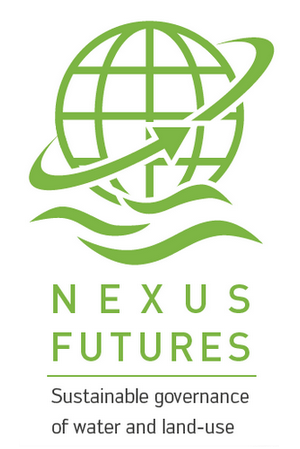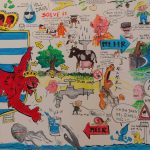The future is open! Increasingly rapid technological, economic and societal changes make forecasting and modeling challenging. Essential natural resources, such as water and land are under increasing pressure from economic and population growth, as is particularly evident in small and fast-growing countries, as in Luxembourg. Some of the expected changes in the future are relatively predictable, while others are uncertain. However, it is safe to say: There is a clear and present need for new approaches to decision-making that can deal with the complexity of today’s tightly interconnected challenges.
The NEXUS FUTURES project serves to co-design and implement participatory processes in order to transform current ways of engaging with natural resources and with each other, for more sustainability. One main project goal is to develop concepts and methods for collaborative future-oriented, systems thinking, which are designed to bring together diverse and at times contradictory interests, expertise and world views on how and why we ‘ought to’ engage with water and soil. to study Such approaches help diverse stakeholders in common pool resources such as clean water and fertile top soil, to embrace complexity, contingency, contradictions and uncertainties whilst still producing shared knowledge for concerted action. .
The NEXUS FUTURES project primarily uses collaborative conceptual systems mapping and future-scenarios as two key methods. Both methods challenge the widespread notion of linear cause and effect relationships, offering the opportunity to view entrenched problems from new perspectives. Sustainability and social innovation are inseparable – interdependencies and feedback loops between changes in the social, technological and material, ecological and personal spheres have to be considered in designing for change. Scenarios and collaborative systems mapping are of course not the only way. However, they complement each other and bring to light drivers of change, and promising fields for concerted action of diverse groups of stakeholders and sometimes even highlight unexpected possibilities. These methods are currently not widely used in policy and practice in Luxembourg.
This project is a pioneering example of transformative science in Luxembourg. Some experts claim that we have all the necessary knowledge to change our ways for sustainability, but implementation is fraught with barriers from short-term interests and adherence to old habits. The NEXUS FUTURES project builds on fundamentally different assumptions: Actionable knowledge to change every day practice for sustainability that is relevant to people in their professional and personal everyday lives is mostly place-based and can only be developed for and with the people concerned. Accordingly, we embed interdisciplinary scientific inquiry in practice with people in social learning processes, in order to experiment with suitable solutions and continually further improve and adapt in tune with global and local change.




